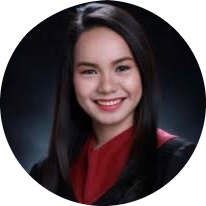
How Connor Walsh Built a $1.85M Wholesaling Machine After Two Real Estate Flop Deals

From Engineering to Entrepreneur: The Wealth Mindset Shift
Why Corporate Pay Ceilings Sparked a Pivot
Connor Walsh trained as a chemical engineer with a minor in business. He advanced quickly in corporate America, living on the edge of his comfort zone and constantly upskilling. Yet his income rose linearly while his abilities grew exponentially.
Frustrated, he turned to self-education, reading Rich Dad Poor Dad, binging BiggerPockets, and diving into rental property strategies.
Learning the Basics: Rentals, Flips, and First Wins
He bought his first rental but quickly learned how fast 20% down payments can drain savings. A flip in his hometown of Boston netted him $45,000, which is nearly a year’s take-home pay. That win felt like freedom. It showed him the potential of working for himself and using his instincts to lead projects.
$70K Lost on Two Tampa Flips: The Turning Point
What Went Wrong
With overconfidence, Walsh bought two houses in Tampa on the MLS using hard money. Both closed the same day. His spreadsheets showed big profits, but reality didn’t cooperate. He overpaid, overestimated ARVs, and underestimated rehab costs.
Contractors disappeared with deposits, timelines stretched, and both deals failed, costing him around $70,000.
Lessons That Changed Everything
- Don’t justify deals with wishful numbers.
- Buying too high is nearly impossible to fix later.
- Virtual flips require hyper-reliable local teams.
- Contractors often prioritize the next deposit—not your job.
Building Back Smarter: Systems, Sales, and Mentorship
From Brick-and-Mortar to Scalable Marketing
Rather than quit, Walsh studied the game harder. He consumed every podcast and video from tactical real estate minds like CJ Moss and Tommy Har. A subsequent flip netted $100,000, refueling his bank account and confidence.
He used that capital to buy “boring businesses”—a laundromat and a cleaning company.
What "Boring Businesses" Taught Him About Scaling
He discovered that brick-and-mortar models cap out. The laundromat could only scale by adding machines, which wasn’t sustainable. Plus, the problems he solved were low-ticket and repetitive.
Walsh realized he thrived in high-ticket, lower-volume operations. Real estate gave him that. A few hours of site work could return $30K–$40K. In contrast, being a part-time laundromat cashier while handling live seller leads wasn’t the lifestyle he wanted.
Why Real Estate Wholesaling Won Out
Big Payoffs, Fewer Moving Parts
In real estate, Walsh saw massive ROI on time. Boston’s high home values ($550K–$850K in many zip codes) meant larger spreads. He averaged $37,000 per wholesale real estate deal, nearly double what some investors earn in lower-priced markets like Indianapolis.
Market Size and Deal Value
Instead of grinding in high-volume, low-margin businesses, Walsh leaned into fewer, higher-value transactions. That shift made his days more focused, and his time more valuable.
How Connor Structures His Wholesaling Business
The Lean Team Setup
- Walsh leads front-end sales and acquisitions.
- Partner Todd oversees flips, dispositions, and rental build-outs.
- Two acquisition managers handle seller relationships.
- A dedicated cold-calling team and outsourced lead managers warm leads.
- His mom is the office manager, transaction coordinator, and listing agent. With 17 years of prior business experience, she ensures every deal is executed ethically and smoothly.
Tracking KPIs and Holding Vendors Accountable
Walsh now spends around $37,000/month on marketing:
- $12,000 on cold calling (250 leads → 50 appointments → 5 deals)
- $10,000 on direct mail (hotter leads, shorter timelines)
- $6,500 on PPC (great for inbound, but pressure-packed to convert quickly)
His marketing strategy is backed by strict KPIs. He doesn’t shift definitions midstream. A lead stays a lead. That consistency keeps conversion math tight.
Ethics, Transparency, and Trust: His Competitive Advantage
No Gimmicks. No Pressure. Just Clarity.
Walsh avoids the shady tactics that hurt the wholesaling industry’s reputation. No fake open houses. No “talking to a partner” lies.
He tells sellers outright: “I won’t be your highest offer—but I will be your fastest and most reliable.”
Building a Trust-First Culture
He encourages co-marketing; if someone wants to bring a buyer, they must put earnest money down. Daisy-chaining with no commitment? Not allowed. He respects the seller’s timeline. His deals close when promised.
“If I feel like I shouldn’t say it, I probably find a way to say it.”
This rule keeps every conversation honest. Sellers trust him. Buyers want to work with him. That reputation compounds over time.
Health Habits That Power Leadership
Food, Hydration, and Focus
A 2023 diagnosis of ulcerative colitis forced Walsh to overhaul his lifestyle. He cut alcohol, inflammatory foods, and started experimenting with hydration strategies. He now uses sea salt and electrolyte mixes to maintain energy and mental clarity.
Leading With Clarity and Energy
He credits his wife, who has the same condition, with teaching him low-inflammatory nutrition. Now, he wakes up sharper, avoids “food hangovers,” and maintains emotional stability in high-stress situations. It’s a performance edge he didn’t expect.
Marketing That Scales: Cold Calling, PPC, and Direct Mail
Spending With Purpose
When his cold calling provider started a new firm, Walsh saw an opportunity. He asked, “What do I need to spend to be your top client?” Then he tripled his budget. As their #1 client, he got top-tier service and account management from the owner himself.
“Big clients get big attention. I wanted to be that client.”
Becoming the Top Client on Purpose
Now spending ~$12,000/month on cold calling, his pipeline consistently delivers. Weekly reviews, KPI tracking, and fast adjustments keep things optimized.
From 6 Months of Silence to $78K on One Deal
Want to hear Connor tell the story in his own words? Watch the full interview below for unfiltered insights, hard lessons, and game-changing advice.
The Cold-Call Funnel That Now Closes 5 Deals Monthly
Walsh spent six months cold-calling before his first deal. Back then, he was on the cheapest service tier—frequent turnover, inconsistent callers, and poor management. But he stuck with it.
That first win? A French-speaking seller resisted pressure from his son and signed the contract. Walsh double closed it and cleared $78,000. Proof of concept achieved.
Outbound vs. Inbound Leads: Two Sales Strategies
- Outbound: Starts cold. Requires rapport. Trust builds over time.
- Inbound: Starts warm. Trust can decline if you don’t crush the first meeting.
This insight drives his strategy. He now prioritizes preparation for inbound leads and nurtures outbound leads with consistency.
What Other Investors Can Learn From Walsh
Practical Takeaways for Fast, Ethical Growth
- Don’t fudge the ARV or budget to justify a deal.
- Buy right or risk everything later.
- Become your vendor’s top client for top-tier service.
- Track KPIs consistently. Don’t change lead definitions.
- Be upfront about your offer. It builds trust.
- Health matters. A clear mind makes better business calls.
Why Leadership, Not Hustle, Scales a Business
Many founders hit a ceiling when they can’t delegate or coach. Walsh embraced the crash-course leadership curve. He focuses on hiring right, giving feedback, and removing bottlenecks. His team trusts him because he’s consistent.
Building Legacy With Purpose
Naming His Business After His Father
Walsh’s company—Paul Francis Development Group—is named after his late father, who passed when Connor was 10. Many people mistakenly call him “Paul,” and he loves it. It keeps the legacy alive.
Staying Grounded, Focused, and Ethical
He’s not interested in shortcuts. He’s building something that lasts. For Walsh, the goal isn’t just wealth, it’s control, honesty, and purpose.
Frequently Asked Questions (FAQ)
Q1: What is real estate wholesaling, and how does it work?
A: It’s the process of contracting a property below market value and assigning that contract to a cash buyer for a fee. You don’t need to renovate or own the property long-term.
Q2: How much can you make from wholesaling in Boston?
A: Connor Walsh averages $37,000 per wholesale deal. High home values in Boston lead to larger spreads compared to markets with lower prices.
Q3: How long does it take to close your first wholesale deal using cold calling?
A: It took Walsh six months. Success depends on consistent calling, a stable team, and refining your pitch over time.
Q4: What are the best marketing channels for wholesaling?
A: Cold calling, direct mail, and PPC. Walsh spends ~$37K/month and tracks KPIs to scale the best-performing channels.
Q5: Can you wholesale ethically?
A: Yes. Walsh proves that transparency, fair expectations, and honesty can scale a successful wholesaling business.
Conclusion
Connor Walsh’s journey shows that even after $70K in losses, it’s possible to build a million-dollar wholesaling business with discipline, data, and ethics. His story isn’t about perfection; it’s about consistent progress.
For those looking to rebuild, scale, or lead with clarity, his example is proof that the right inputs, tracked consistently, can yield massive, sustainable results.

About Maria Tresvalles
Maria Tresvalles is the dynamic Marketing Specialist at DealMachine, where she has been a key player for the past five years. With a strong background in customer relations, Maria started her journey at DealMachine as a Customer Success Coordinator, where she honed her skills in understanding customer needs and driving satisfaction.


